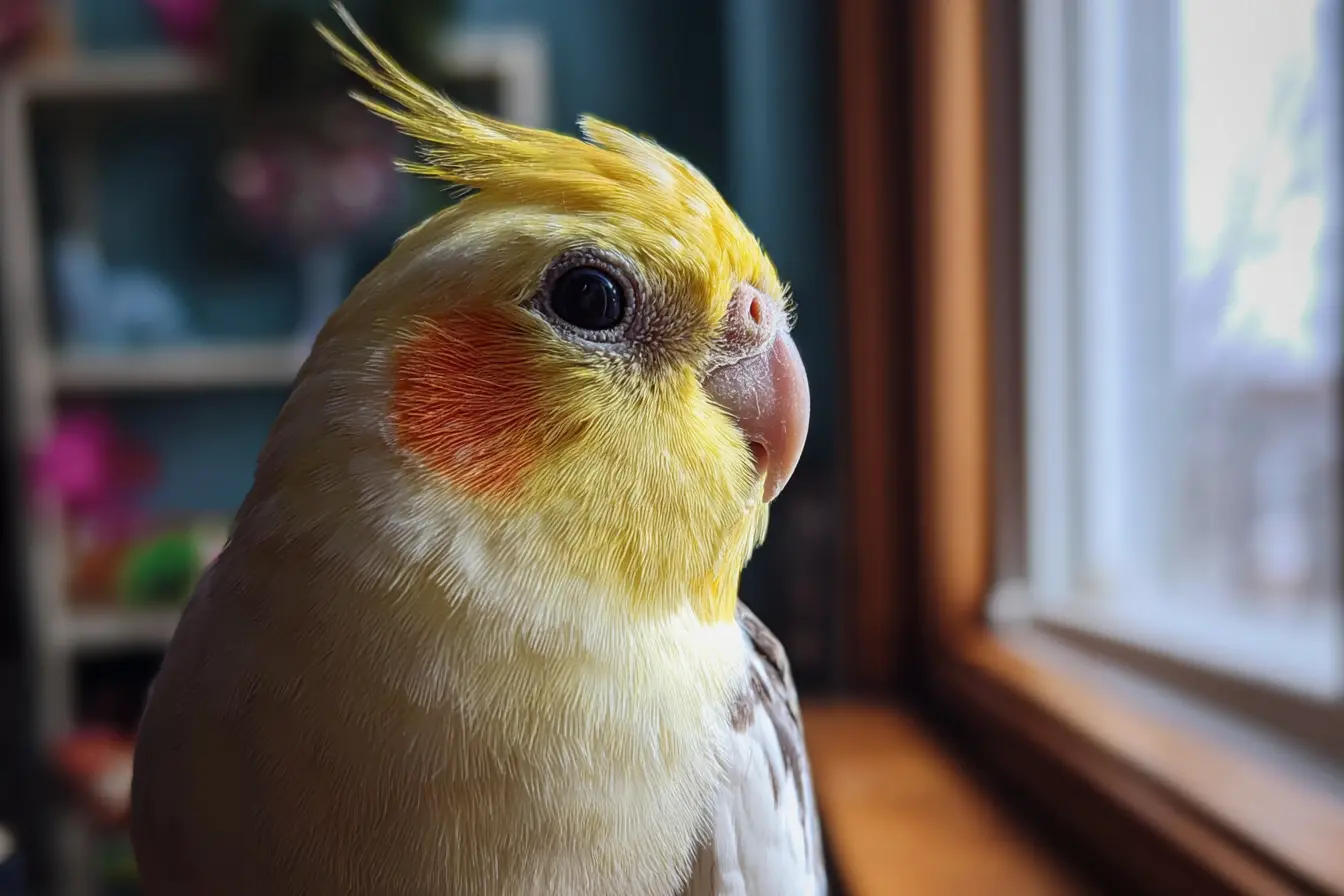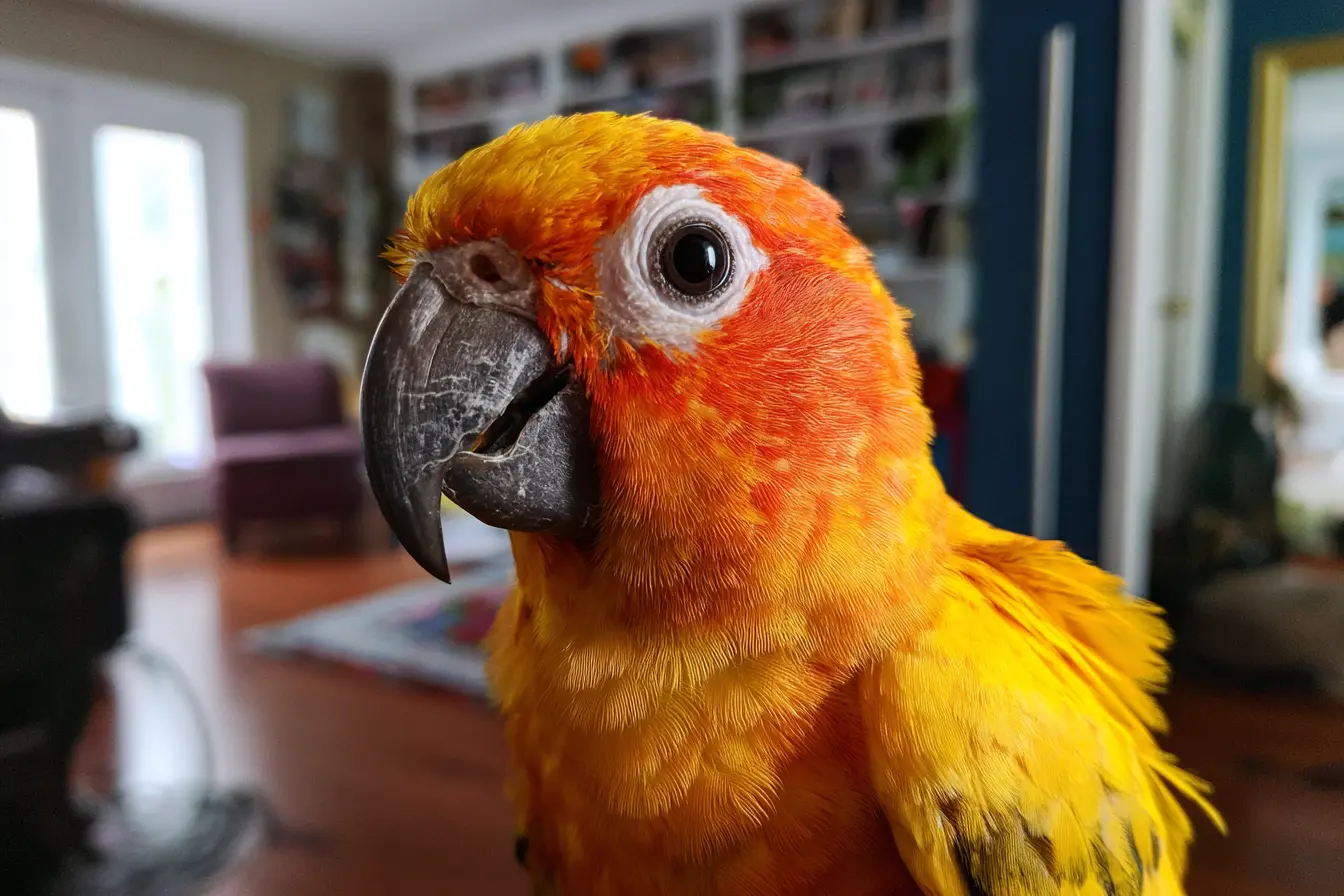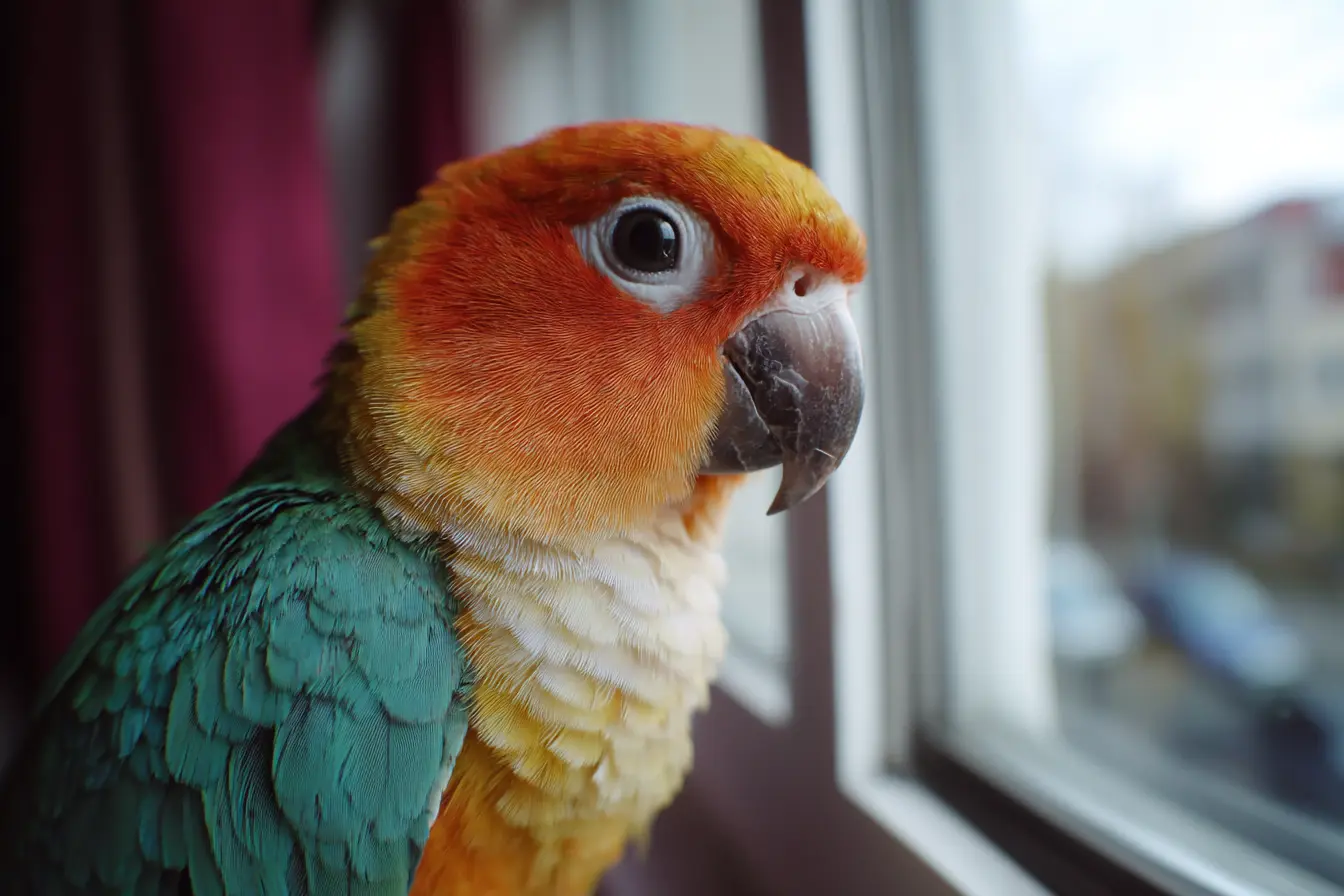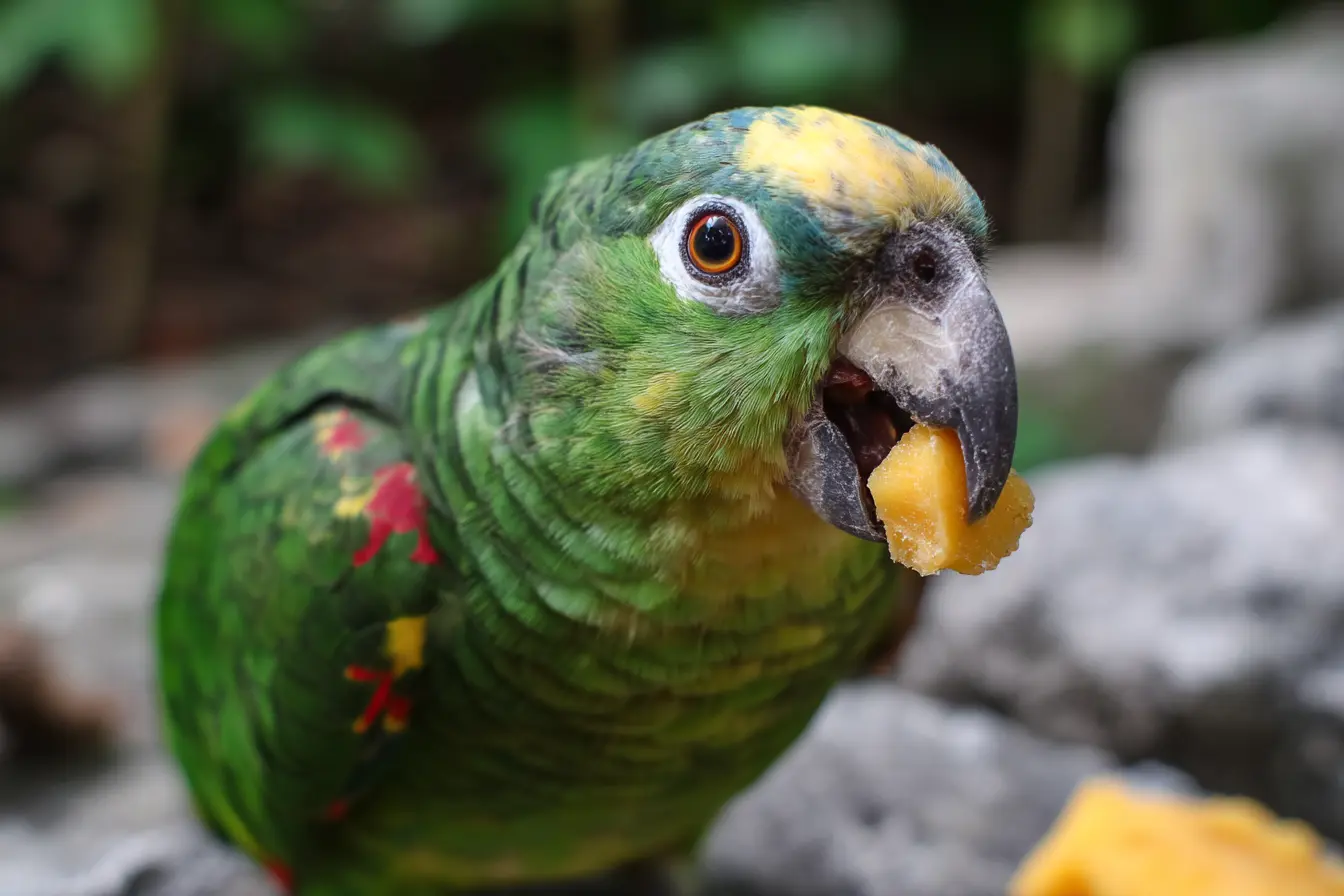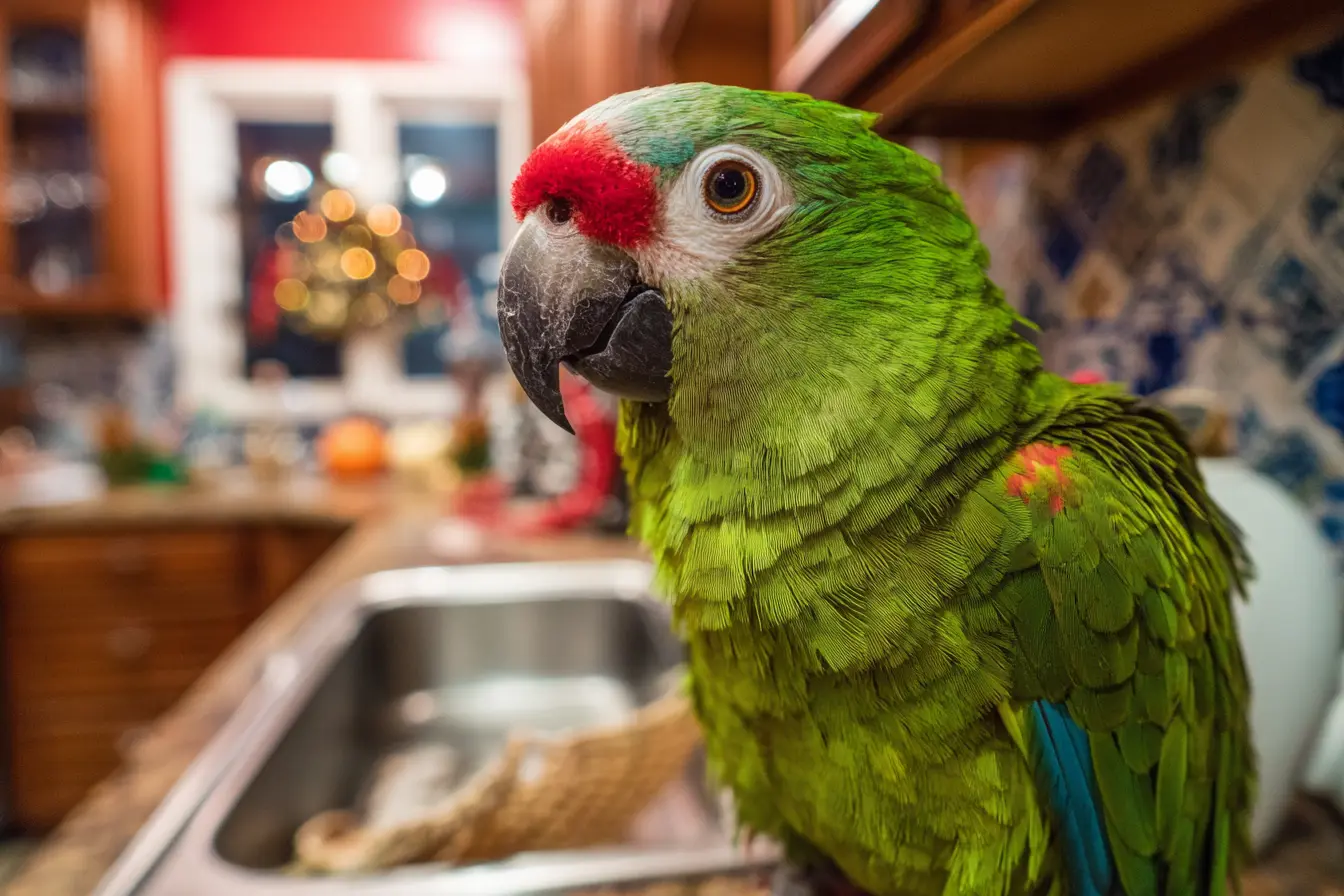
The Dangers of Teflon to Birds
Birds are incredibly sensitive creatures, particularly when it comes to air quality. One of the lesser-known but extremely serious hazards to pet birds is exposure to fumes from Teflon-coated cookware and appliances. Many bird owners are unaware of the deadly risks until it is too late.
This guide will explain in detail how Teflon harms birds, what products pose a threat, the symptoms of exposure, and how to protect your avian companions.
What Is Teflon?
Teflon is the brand name for a synthetic chemical called polytetrafluoroethylene (PTFE). It is widely used to coat cookware, appliances, and other products because of its non-stick properties and heat resistance.
While Teflon is safe for human use under normal conditions, it becomes highly toxic to birds when overheated.
Why Is Teflon Dangerous to Birds?
When Teflon-coated surfaces are heated above approximately 260°C (500°F), they begin to break down and release a range of toxic gases and particulates. Among these are:
- Polytetrafluoroethylene (PTFE) fumes
- Perfluorooctanoic acid (PFOA) residues
Birds have extremely efficient respiratory systems designed for high oxygen intake. Unfortunately, this also makes them highly vulnerable to airborne toxins. Even minute amounts of these gases can cause a condition known as Teflon toxicosis, which can be fatal within minutes.
Symptoms of Teflon Toxicosis in Birds
Exposure to overheated Teflon fumes can cause acute respiratory distress. Symptoms may include:
- Difficulty breathing or gasping for air
- Weakness and lethargy
- Fluffed-up feathers
- Seizures
- Sudden collapse
- Death, often with little or no warning
In many cases, there are no preceding signs — a healthy bird may die suddenly after even brief exposure.
Common Household Items That May Contain Teflon or PTFE
It is not just frying pans that pose a risk. Many other household items can contain PTFE coatings, including:
- Non-stick frying pans and saucepans
- Toasted sandwich makers
- Waffle makers
- Grills and griddles
- Slow cookers
- Rice cookers
- Air fryers
- Bread makers
- Electric skillets
- Pressure cookers
- Irons and ironing board covers
- Heat lamps
- Hair dryers
- Space heaters
- Fan heaters
- Self-cleaning ovens (the coatings inside can contain PTFE)
- Some light bulbs (especially coated 'shatterproof' bulbs)
Always check product specifications or manufacturer information to see if PTFE is used.
How to Protect Your Bird from Teflon Toxicity
Avoid Non-stick Cookware and Appliances:
Replace all non-stick cookware and coated appliances with bird-safe alternatives such as stainless steel, cast iron, glass, or ceramic.
Use PTFE-free Appliances:
Look specifically for products labelled "PTFE-free" and "PFOA-free". Contact manufacturers if this information is unclear.
Cook in a Separate, Well-ventilated Area:
Even when using safe cookware, cooking releases fumes. Ideally, keep birds completely away from the kitchen.
Maintain Excellent Ventilation:
Use extractor fans, open windows, and air purifiers without ozone production when cooking or using heating appliances.
Educate Everyone in the Household:
Ensure that all family members, guests, and housemates understand the risks and know not to use non-stick products around birds.
Emergency Preparedness:
If you suspect Teflon exposure, immediately remove the bird from the environment and seek emergency veterinary care. Rapid treatment may improve survival chances.
Are Any Non-stick Cookware Options Safe?
Some manufacturers offer products marketed as "PTFE-free" or "ceramic-coated." When selecting new cookware:
- Confirm explicitly that the product is PTFE-free and PFOA-free**.
- Prefer materials like stainless steel, cast iron, glass, or pure ceramic.
- Be cautious with some ceramic non-stick claims — always verify.
Safe Alternatives to Teflon Products
If you are upgrading your home to make it bird-safe, consider these alternatives:
-
Cookware:
- Stainless steel pots and pans
- Well-seasoned cast iron cookware
- Ceramic-coated cookware that is certified PTFE- and PFOA-free
- Glass baking dishes
-
Small Kitchen Appliances:
- Air fryers with stainless steel baskets (no coatings)
- Stainless steel slow cookers with ceramic inserts
- Bread makers without non-stick interiors (pure stainless steel or uncoated ceramic)
-
Heating Appliances:
- Oil-filled radiators (safe alternative to fan heaters)
- Ceramic heaters (without PTFE coatings)
-
Other Items:
- Steam irons without non-stick soleplates
- Shatterproof light bulbs that do not use chemical coatings
Always thoroughly research new products and, when in doubt, contact the manufacturer to confirm that the item is free from PTFE or PFOA.
Myths About Teflon and Birds
Myth: "It is safe as long as you do not overheat it."
Reality: Overheating can happen easily and unnoticed, especially if a pan or appliance is left unattended.
Myth: "Small birds are at risk, but large parrots are safe."
Reality: All birds, regardless of size, are highly susceptible to Teflon toxicosis.
Myth: "Newer Teflon products are safe."
Reality: Many "new" non-stick products still use PTFE and can still be deadly to birds.
Conclusion
Teflon toxicosis is a tragic but completely preventable cause of death in pet birds. As responsible owners, avoiding non-stick cookware and PTFE-coated appliances is essential to ensuring the safety and wellbeing of your feathered companions.
By replacing hazardous products, maintaining good ventilation, and staying vigilant, you can create a safe and healthy environment for your birds. Education, preparation, and caution will help ensure that your home is truly a haven for your avian friends.
Contents
Tags
Vets near you
Speciality vets
- Aquatics vet specialists
- Birds vet specialists
- Camelids vet specialists
- Cats vet specialists
- Cattle vet specialists
- Deer vet specialists
- Dogs vet specialists
- Equines vet specialists
- Exotic vet specialists
- Goats vet specialists
- Pigs vet specialists
- Poultry vet specialists
- Sheep vet specialists
- Small Mammals vet specialists
- Wild vet specialists
Vet facilities
- Accessible by public transport
- Blood testing
- Car park nearby
- Client car park
- Dentistry
- Diagnostic imaging
- Disabled public access
- Flea and worm treatments
- Microchipping
- Mobile services
- Neutering
- Open at weekends
- Out-of-hours service
- Referral interests
- Referrals only
- Street parking outside
- Toilets available
- Vaccinations
